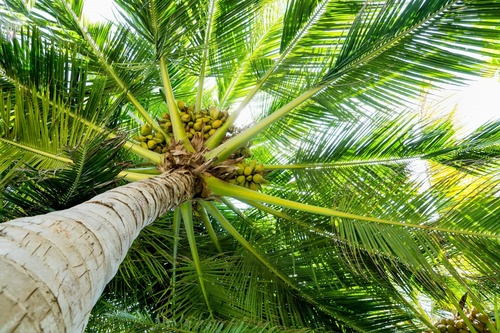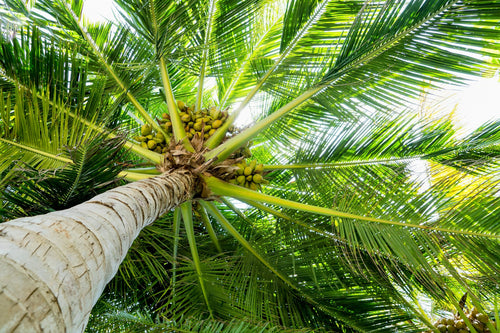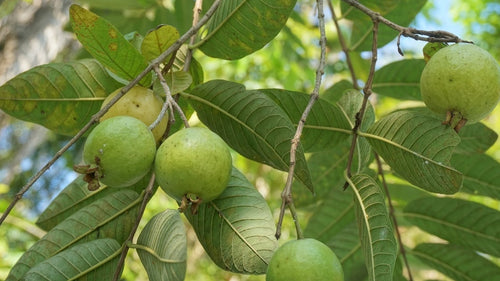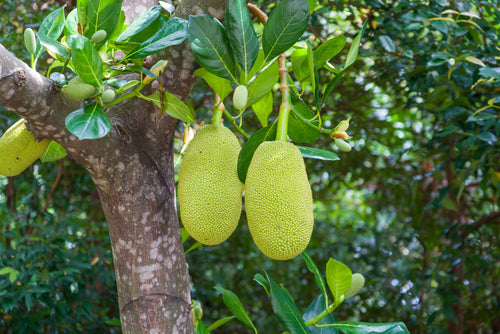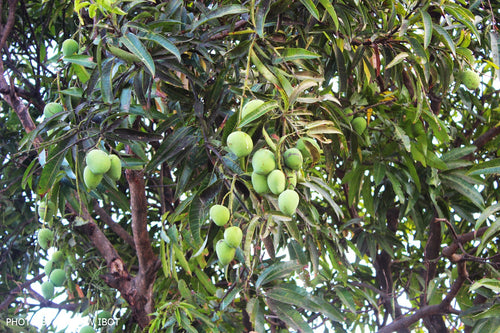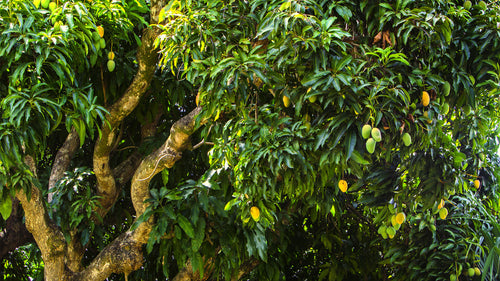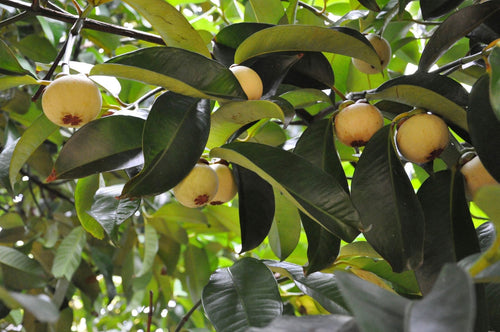"Eco-Impact in Action: VYMO’s Agroforest Plantation Drive"
VYMO’s tree plantation initiative embraces the agroforest concept, blending environmental stewardship with community well-being. The project focuses o Read more
Project Update 1
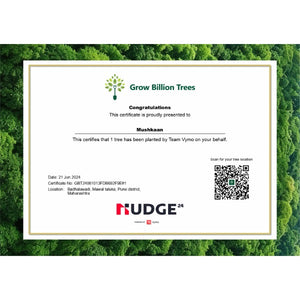
Digital Forest
Forest with 50 Trees planned
Want to plant your tree now?
Plant a Tree @ 299"Eco-Impact in Action: VYMO’s Agroforest Plantation Drive"
VYMO’s tree plantation initiative embraces the agroforest concept, blending environmental stewardship with community well-being. The project focuses on creating a sustainable landscape by planting a diverse range of native tree species that boost local biodiversity and strengthen ecological resilience. With the help of local farmers, VYMO’s approach enhances soil fertility, conserves water, and fosters a balanced environment where trees and crops flourish side by side. This initiative reflects VYMO’s dedication to ecological harmony and its commitment to supporting sustainable practices that benefit both the environment and the community. By partnering with farmers, VYMO fosters a thriving, sustainable landscape that contributes to a greener future for generations to come.
Tree Plantation Date
21st June 2024
Plantation Location
Badhalawadi, Mawal Taluka, Pune District, Maharashtra 410507
Trees Planted
Total Count: 50 Trees
Species Name: Mango, Guava, Chiku, Jackfruit, Coconut
Forest Type: Agroforest
VYMO’s tree plantation initiative in the agroforest concept focuses on creating a sustainable ecosystem by integrating native tree species with agricultural land, promoting biodiversity and soil health while conserving water. Partnering with local farmers, VYMO's approach transforms traditional planting into a symbiotic landscape where trees and crops coexist, fostering resilience against environmental challenges. This collaboration not only boosts the livelihood of farmers but also strengthens rural ecosystems, supporting a greener future. VYMO’s agroforest initiative thus embodies a holistic commitment to environmental care and community well-being, demonstrating how sustainable growth can nurture both nature and the local community.
Advantages Of Agroforest
Enhanced Biodiversity
Agroforestry encourages a variety of plant and animal species to thrive by integrating trees with crops or livestock in the same land area. This diversity creates a more balanced ecosystem, supporting native wildlife, pollinators, and beneficial insects. The result is a resilient environment that can adapt more readily to changes in climate and pest populations.
Soil Health Improvement
Trees in an agroforest system have deep roots that stabilize soil, reducing erosion and loss of nutrients, which are often depleted in conventional agricultural setups. These roots draw up minerals from deeper layers, enhancing nutrient cycling and enriching the soil surface. Leaf litter from trees also decomposes, providing organic matter that improves soil structure, fertility, and moisture retention.
Water Conservation
Tree canopy cover reduces water runoff, helping retain moisture in the soil and allowing more rainfall to seep into groundwater. In dry regions or areas with irregular rainfall, this is especially valuable. The tree roots also help maintain water in the soil, providing a natural reserve that supports crops through dry spells.
Carbon Sequestration
Trees absorb carbon dioxide from the atmosphere and store it in their biomass, effectively sequestering carbon and helping mitigate climate change. Agroforestry, with its diverse vegetation, can sequester more carbon than conventional agricultural systems, contributing to a lower carbon footprint and a healthier planet.
Increased Farm Resilience
The tree cover in agroforestry systems acts as a natural buffer against extreme weather. By creating a more stable microclimate, it reduces wind speeds, offers shade that moderates soil temperatures, and shelters crops from intense sun or heavy rain. This stability increases crop resilience, allowing farms to better withstand the effects of climate variability.
Economic Diversification
Agroforestry enables farmers to harvest multiple products, such as fruits, nuts, timber, medicinal plants, or firewood, in addition to their primary crops. This diversified income stream provides greater financial security and can reduce the risks associated with fluctuating crop markets or weather-related crop failures.
Pest Control and Pollination
The trees in agroforestry systems attract various beneficial insects that act as natural pest predators, reducing the need for pesticides. Similarly, the diversity of plants supports healthy populations of pollinators like bees and butterflies, which are crucial for crop productivity and sustainability. This natural pest control and pollination boost yield and save costs on chemical inputs.
Improved Air Quality
Trees filter pollutants from the air, including dust and harmful gases, and produce oxygen, improving air quality for nearby communities. This cleaner air not only benefits residents but also creates a healthier environment for workers on the farm.
Activities During Tree Plantation
During VYMO’s agroforest tree plantation initiative, local farmers lead various activities to establish a sustainable and balanced ecosystem. They begin with site preparation, clearing debris and enriching the soil if needed. Saplings are planted at strategic intervals to promote optimal growth alongside crops, with each one watered and mulched to retain moisture and prevent soil erosion. Companion crops are planned to coexist with the growing trees, enhancing soil health and land use efficiency. Regular monitoring ensures sapling health, with replacements planted as needed to sustain the agroforest. This initiative reflects VYMO’s dedication to environmental restoration and community support through sustainable agricultural practices.
Tree Plantation Purpose
SDGs Achieved Through Agroforest
1. SDG 1: No Poverty
By partnering with local farmers for tree planting, VYMO’s initiative creates income-generating opportunities in rural areas, improving livelihoods. Agroforestry enables farmers to diversify their income sources through additional products such as fruits, nuts, and timber. This economic empowerment helps reduce poverty levels, offering a sustainable pathway out of poverty by increasing financial resilience.
2. SDG 2: Zero Hunger
Agroforestry improves soil fertility and water retention, leading to healthier crops and increased agricultural productivity. By integrating trees with crops, VYMO’s initiative supports food security, enabling farmers to yield higher, more nutritious crops. Additionally, this practice allows farmers to grow a mix of food and cash crops, which reduces the risk of food shortages and promotes sustainable agriculture.
3. SDG 6: Clean Water and Sanitation
The trees planted help retain water in the soil, improve groundwater recharge, and reduce runoff and erosion. This natural water conservation supports sustainable water use, especially important in drought-prone areas. By protecting water resources, VYMO’s initiative promotes long-term water availability for both agricultural and community needs.
4. SDG 8: Decent Work and Economic Growth
VYMO’s agroforest initiative creates decent work opportunities for farmers and encourages sustainable economic growth. By involving farmers directly in the planting process, the initiative supports fair wages, skill development, and economic security in rural communities. The diversified agroforest model also ensures long-term income through multiple harvest cycles, driving sustainable economic growth.
5. SDG 13: Climate Action
Trees play a significant role in carbon sequestration, helping to mitigate climate change. By planting native trees and creating a resilient agroforest system, VYMO’s initiative actively reduces greenhouse gases. Additionally, the agroforest approach enhances ecosystem resilience, enabling adaptation to climate change impacts like extreme weather events, further supporting climate action goals.
6. SDG 15: Life on Land
VYMO’s tree plantation initiative helps restore degraded land, improve soil quality, and support biodiversity. The integration of native trees with crops creates a habitat for diverse flora and fauna, fostering a balanced ecosystem. By focusing on sustainable land use and reforestation, this initiative contributes to the conservation and restoration of terrestrial ecosystems, supporting SDG 15's mission to protect life on land.
7. SDG 17: Partnerships for the Goals
VYMO's partnership with Grow Billion Trees has significantly advanced the achievement of Partnerships for the Goals by fostering a collaborative approach to environmental sustainability and community engagement. Through this alliance, VYMO has leveraged Grow Billion Trees' expertise in reforestation and tree planting initiatives, creating a synergistic model that enhances the effectiveness and reach of their agroforest project. This partnership not only amplifies tree planting efforts but also brings together local farmers, stakeholders, and environmental organizations, facilitating knowledge sharing and capacity building. By working collectively towards a common goal, VYMO and Grow Billion Trees have strengthened community resilience, promoted sustainable practices, and inspired broader participation in environmental stewardship, ultimately demonstrating the transformative power of partnerships in addressing global challenges.
ESGs Achieved Through Agroforest
Environmental (E)
VYMO’s tree plantation initiative in the agroforest concept plays a crucial role in promoting environmental sustainability. By planting native trees alongside agricultural crops, the initiative enhances biodiversity, supports soil health, and improves water conservation. The trees help in carbon sequestration, reducing greenhouse gases and mitigating climate change impacts. Additionally, the agroforestry model fosters a balanced ecosystem that enhances resilience against environmental challenges, contributing to healthier landscapes and promoting sustainable land use practices.
Social (S)
The initiative significantly impacts local communities by improving livelihoods and fostering social cohesion. By partnering with local farmers, VYMO empowers them through training and involvement in sustainable practices, enhancing their skills and knowledge in agroforestry. This collaboration creates additional income opportunities through diversified products such as fruits and timber, contributing to food security and economic stability. Moreover, the initiative strengthens community bonds as farmers work together towards a common goal, fostering a sense of collective responsibility for environmental stewardship.
Governance (G)
Grow Billion Trees has significantly bolstered VYMO’s governance efforts in its tree plantation initiative within the agroforest concept by providing a framework for transparent and ethical collaboration with local communities and stakeholders. Through this partnership, VYMO has adopted best practices in environmental stewardship and community engagement, ensuring that the initiative aligns with sustainable development goals. Grow Billion Trees emphasizes accountability and stakeholder participation, which has led VYMO to implement clear communication channels and decision-making processes that involve farmers and community members. This collaborative approach not only enhances trust and cooperation but also reinforces VYMO’s commitment to responsible corporate governance, ultimately contributing to the initiative's success and sustainability.
Commitment by Grow Billion Trees
Grow Billion Trees is committed to driving sustainable plantation efforts, ensuring every initiative aligns with key environmental objectives and promotes long-term ecological balance. They focus on selecting native tree species that are well-adapted to local ecosystems, ensuring a higher survival rate and stronger environmental impact.
To maintain plant health and longevity, Grow Billion Trees emphasizes continuous maintenance and regular monitoring of the plantations. This approach helps ensure that each tree thrives, contributing effectively to both biodiversity and climate resilience.
Transparency is a core principle in their operations. Clients receive comprehensive reports, including geo-tagging of planted trees, survival rate updates, and ongoing progress reports. This level of openness allows clients to track the direct impact of their contributions, reinforcing trust and accountability.
Through their dedication to sustainable practices, Grow Billion Trees ensures that every plantation project leaves a lasting positive footprint on both the environment and the local communities it serves.
Summary
VYMO’s tree plantation initiative in the agroforest concept is a sustainable and community-driven project that focuses on enhancing environmental health and supporting local farmers. By integrating native trees with agricultural crops, the initiative promotes biodiversity, improves soil fertility, and conserves water, contributing to a more resilient ecosystem. Local farmers are actively involved in the planting process, which not only empowers them economically but also fosters a sense of community and shared responsibility for environmental stewardship. The partnership with Grow Billion Trees further strengthens governance practices, ensuring transparency and ethical collaboration throughout the initiative. Through this comprehensive approach, VYMO’s agroforest project exemplifies a commitment to sustainable development, addressing ecological challenges while enhancing the livelihoods of rural communities.
Trees for Corporates
Trending
Most Popular
1. Agroforestry Benefits
Agroforestry is like the Swiss Army knife of sustainable farming—packed with benefits and never leaves you hanging! Imagine a world where trees and crops live in perfect harmony, creating a diverse ecosystem that not only boosts biodiversity but also improves soil health. By planting trees alongside their crops, farmers can enjoy multiple streams of income from fruits, nuts, and timber, all while fostering a robust environment. And let’s not forget about water conservation! Trees help retain moisture in the soil, reducing the need for irrigation. Plus, with their ability to capture carbon dioxide, they’re like Mother Nature’s little climate warriors. So, if you’re looking to elevate your farming game while being an eco-friendly superstar, agroforestry is the way to go!
2. VYMO’s Sustainability Initiatives
When it comes to sustainability, VYMO isn’t just planting trees; they’re sowing the seeds of change! With their innovative approach to tree plantation in agroforests, they’ve taken eco-friendliness to a whole new level. VYMO’s initiatives not only enhance biodiversity but also empower local farmers to embrace sustainable practices. By integrating native trees into farming systems, they’re promoting a greener planet while helping farmers diversify their income streams. Who knew that saving the environment could also pad your pockets? And let’s be honest, who wouldn’t want to be part of a movement that turns fields into thriving forests? VYMO is leading the charge towards a sustainable future, one tree at a time!
3. Community Involvement in Tree Planting
Community involvement in tree planting is like throwing a block party, but with a little more dirt and a lot more greenery! When local farmers come together to plant trees, they’re not just enhancing their land; they’re creating a sense of camaraderie that turns strangers into neighbors. It’s a win-win! Participants get their hands dirty while learning about sustainable practices, and Mother Nature gets some much-needed TLC. Plus, who doesn’t love the idea of transforming barren fields into lush landscapes? Community tree planting is not just about the trees; it’s about building relationships and fostering a culture of environmental stewardship. So grab your spade, rally your friends, and let’s dig in—because nothing says “we care” like a good ol’ tree-planting day!
4. Native Tree Species for Agroforestry
When it comes to agroforestry, choosing native tree species is like selecting the right cast for a blockbuster movie—it can make all the difference! Native trees are perfectly adapted to the local environment, requiring less water and care while providing habitat for local wildlife. Think of them as the VIPs of the ecosystem, bringing along their friends, the pollinators, to help with crop yields. By incorporating these green powerhouses into farming systems, farmers can enhance soil health and promote biodiversity. It’s a natural choice that pays dividends! Plus, you can impress your friends at the next dinner party by casually dropping facts about your favorite local tree species—talk about a conversation starter! So, let’s raise a toast to our native heroes and make agroforestry fabulous!
5. Economic Impact of Agroforestry
Agroforestry isn’t just good for the environment; it’s also a money-making machine! By integrating trees into agricultural systems, farmers can enjoy a buffet of income streams—from selling fruits and nuts to harvesting timber. This diversified approach acts as a financial safety net, cushioning farmers against market fluctuations and crop failures. It’s like having a backup singer for your farming career! With the added benefits of improved soil health and increased crop yields, agroforestry becomes a financial powerhouse. Not only do farmers boost their income, but they also contribute to a more sustainable economy. So, if you’re looking to cash in while saving the planet, agroforestry is the way to go—because who says you can’t have your cake and eat it too?
6. VYMO’s Community Engagement
VYMO isn’t just planting trees; they’re planting roots in the community! Their tree plantation initiatives are all about engaging local farmers and fostering a sense of ownership in sustainable practices. By involving the community, VYMO not only enhances environmental stewardship but also empowers individuals to take charge of their future. This isn’t just a one-time event; it’s a movement! Farmers learn valuable skills while contributing to a greener planet, creating a ripple effect of positive change. With VYMO leading the way, communities are turning barren landscapes into vibrant agroforests, proving that together, they can achieve anything. So, join the fun and let’s make community engagement the new trend in environmentalism!
7. Biodiversity in Agroforestry
Biodiversity in agroforestry is like a party where every plant and creature gets an invite! By integrating diverse species of trees and crops, agroforestry systems create a rich tapestry of life that supports everything from soil microorganisms to pollinators. This diversity enhances ecosystem resilience, making it easier for farms to bounce back from environmental stresses. It’s a natural insurance policy that benefits everyone! Plus, with a variety of plants, farmers can enjoy a smorgasbord of products, ensuring their harvests are as diverse as their guests. So, let’s celebrate biodiversity in agroforestry—because the more, the merrier when it comes to sustainable farming!
8. Agroforest Ecosystem Services
Agroforest ecosystem services are like the hidden gems of farming—often overlooked but absolutely essential! These services, ranging from carbon sequestration to soil enhancement, play a vital role in maintaining a healthy environment. Trees act as natural air filters, capturing pollutants and improving air quality while providing shade and habitat for wildlife. Additionally, they help in regulating water cycles and reducing soil erosion, making them invaluable allies for farmers. By recognizing and valuing these ecosystem services, farmers can enhance their productivity while contributing to a more sustainable future. So, let’s give a round of applause to agroforests for their superhero-like abilities in the ecosystem, proving that nature has a lot to offer when it comes to farming!
FAQ
What is VYMO’s tree plantation initiative in agroforestry?
VYMO’s tree plantation initiative focuses on integrating tree planting with agricultural practices through the agroforestry concept. This approach enhances biodiversity, improves soil health, and supports local farmers by providing multiple income sources from both crops and timber. Our commitment to sustainability promotes environmental stewardship while empowering communities to adopt greener practices for a better future.
What are the benefits of agroforestry for farmers?
Agroforestry offers numerous benefits for farmers, including increased biodiversity, improved soil fertility, and enhanced water retention. By planting trees alongside crops, farmers can diversify their income through fruits, nuts, and timber, reducing financial risks. Additionally, agroforestry practices help mitigate climate change impacts and promote sustainable land use, leading to long-term agricultural resilience.
How does VYMO involve local communities in tree planting?
VYMO actively engages local communities in our tree planting initiatives by partnering with farmers and providing them with training on sustainable practices. We organize community events that encourage participation and foster a sense of ownership, ensuring that the benefits of agroforestry are shared among all stakeholders. This collaborative approach strengthens community ties and promotes environmental stewardship.
What types of trees are planted in VYMO’s agroforest initiatives?
VYMO focuses on planting native tree species in our agroforest initiatives to promote biodiversity and ensure ecological balance. These trees are well-adapted to the local environment, requiring less maintenance while providing habitats for various wildlife. By choosing native species, we enhance soil health and support sustainable agricultural practices that benefit both farmers and the ecosystem.
How does tree planting impact the environment?
Tree planting significantly benefits the environment by improving air quality, sequestering carbon, and enhancing biodiversity. Trees help mitigate climate change effects by absorbing carbon dioxide and releasing oxygen, contributing to a healthier atmosphere. Additionally, they prevent soil erosion, improve water retention, and create habitats for wildlife, making tree planting a crucial component of sustainable development.
What role does VYMO play in combating climate change?
VYMO plays a vital role in combating climate change through our tree plantation initiatives. By promoting agroforestry and planting native trees, we contribute to carbon sequestration and enhance ecosystem resilience. Our efforts empower local communities to adopt sustainable practices, ensuring that they can adapt to climate challenges while benefiting from diverse agricultural products.
How can individuals support VYMO’s tree planting initiatives?
Individuals can support VYMO’s tree planting initiatives by volunteering during community planting events or contributing financially to our programs. Spreading awareness about the importance of agroforestry and sustainable practices also helps us reach a wider audience. Every effort counts in our mission to promote environmental sustainability and support local farmers, making a positive impact together.
What is the long-term vision of VYMO’s agroforestry initiatives?
VYMO’s long-term vision for our agroforestry initiatives is to create sustainable ecosystems that benefit both the environment and local communities. We aim to empower farmers through training and resources, fostering resilient agricultural practices that thrive alongside nature. By promoting biodiversity and sustainable land use, we envision a future where farming and environmental stewardship coexist harmoniously.
Are there any educational programs related to tree planting offered by VYMO?
Yes, VYMO offers educational programs focused on tree planting and sustainable agriculture. These programs are designed to equip farmers and community members with knowledge about agroforestry practices, soil health, and biodiversity conservation. By providing hands-on training and resources, we aim to promote a culture of environmental stewardship and empower individuals to implement sustainable practices in their own communities.
- Choosing a selection results in a full page refresh.
- Opens in a new window.


